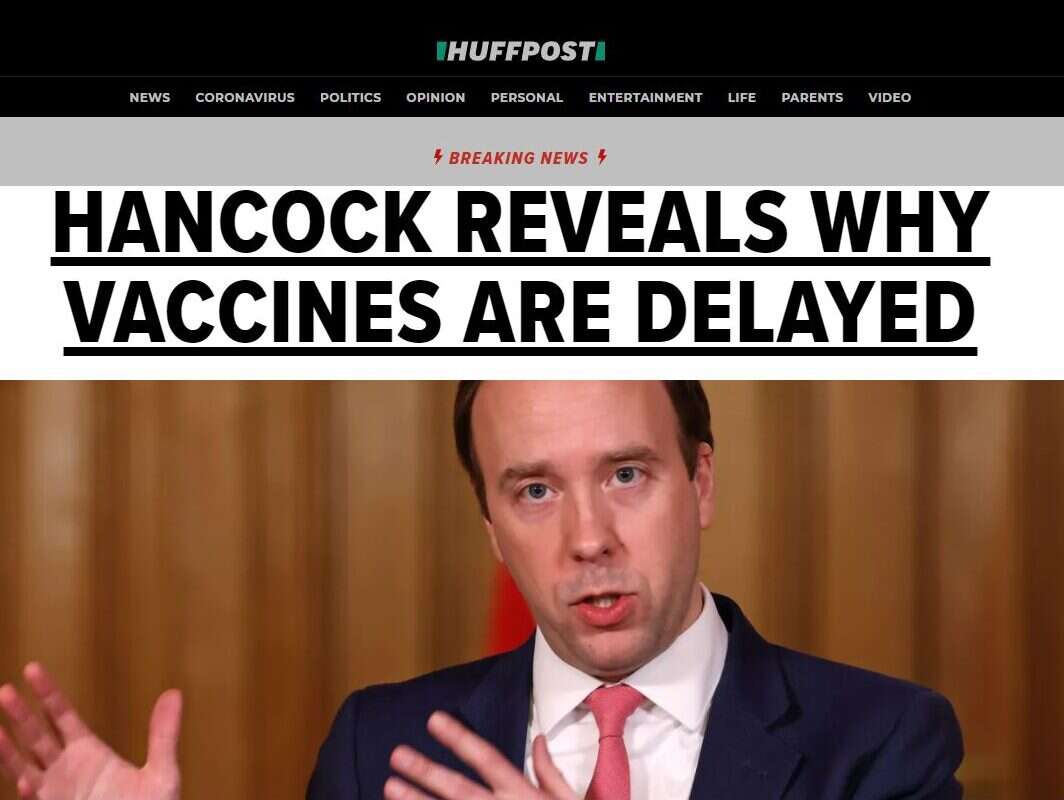
Huffpost has become the latest of the new digital-only newsbrands to fail, not in its journalism but in its ability to make news pay.
The title has been bought by Buzzfeed, which was forced to axe its own news operations in the UK and Australia last year in the face of ongoing losses – £22.8m in the UK over five years –and a global pandemic. A previous round of cuts had already led to an exodus of talent.
Huffpost is now facing the same fate. Its Canada edition is closing, its US team is facing 47 job cuts and in the UK 17 out of 29 journalists are at risk, mostly on the news desk which is set to close, while politics, entertainment and lifestyle sections in the UK look set to stay.
One UK insider described the process as “brutal”.
Following a video call with Buzzfeed chief executive Jonah Peretti announcing the cuts on Tuesday last week, they said: “We were all in a big meeting just going ‘what the fuck is happening?’, and as we were in that meeting emails started dropping into our inboxes saying ‘you’re at risk’ or ‘you’re not at risk’ [of redundancy].”
Peretti – part of the team that founded Huffpost (formerly Huffington Post) with Arianna Huffington in 2005 – reportedly revealed in the call that Huffpost had lost $20m last year and was on track to make similar losses this year were it not for the layoffs.
Buzzfeed’s first round of staff cuts in late 2017 signalled that the new breed of digital-only media companies did not have the answer to making journalism pay in the digital age after all. Digital pure-players Vice and Quartz have since followed with cutbacks of their own, the pandemic a slump serving to accelerate their decline.
It’s clear that Buzzfeed’s plan to make Huffpost profitable was not a long-term one, after buying it from Verizon Media Group (formerly Oath) in November last year.
“They were not remotely willing to give us a chance to become profitable,” the Huffpost UK insider told Press Gazette. “They didn’t bother having a go at seeing if they could sell news.”
In the UK, Huffpost has built an identity as a liberal news title that leans on regional press-style reporting to reach underserved audiences and cover social issues, with a readership that skews female. Editor Brammar told Press Gazette in 2019 that the title has “old-fashioned tabloid values at heart” and was perhaps closest to tabloid the Mirror.
But it might not have been enough to make it stand out.
Figures for February from Similarweb show that Huffpost UK had 4.6m visits, putting it only above Joe.co.uk in the rankings of free-to-access UK news websites and well below fellow left-leaning news brand The Guardian’s considerable online presence.
| Publication | Website | Total visits – Feb 2021 (millions) |
| Mail Online | dailymail.co.uk | 299.85 |
| The Guardian | theguardian.com | 285.63 |
| Buzzfeed (US) | buzzfeed.com | 124.25 |
| Daily Express | express.co.uk | 116.14 |
| Business Insider | businessinsider.com | 107.32 |
| The Sun | thesun.co.uk | 91.24 |
| Independent | independent.co.uk | 80.83 |
| Huffpost (US) | huffpost.com | 74.01 |
| Mirror | mirror.co.uk | 72.14 |
| Business Insider (US) | insider.com | 32.59 |
| Daily Star | dailystar.co.uk | 32.1 |
| Metro | metro.co.uk | 31.65 |
| Vice (US) | vice.com | 30.29 |
| Newsweek | newsweek.com | 28.84 |
| The i | inews.co.uk | 8.32 |
| Quartz | qz.com | 7.61 |
| Lad Bible | ladbible.com | 7.38 |
| Huffpost UK | huffingtonpost.co.uk | 4.59 |
| Joe | joe.co.uk | 1.2 |
Figures: Similarweb
Rather than looking for answers to why Huffpost has faltered, which is unlikely to be down to just one thing, it might serve to look at other digital pure-players who are managing to make it work.
The Independent reported a fourth year of profit since going digital-only in 2016, with £2.7m in pre-tax profits for the year to 27 September 2020, up 17% year-on-year, on revenues of £30.3m, up 12% year-on-year. The title is eyeing turnover of $100m in three years.
It has succeeded in diversifying its revenue streams, serving ads, offering both free and paid-for premium content, striking partnership deals with Facebook, Google and Taboola, and moving into e-commerce.
[Read more: The ‘happy warrior’ making quality journalism pay at The Independent]
Revenues at Insider, formerly Business Insider, are said to have grown by 30% to around $150m in 2020. Chief executive Henry Blodget told Press Gazette last month that its success had, in part, been down to necessity.
“Companies like Buzzfeed and Vice and others raised hundreds of millions of dollars. It’s wonderful to have that in a way – you can do huge, ambitious things,” he said.
“But if there is a virtue to having far less money – we raised just over $50m over eight years – it’s that you have to focus and figure out how the business works in relatively short order, or you run out of money.
“That discipline helped us a lot. And it taught us at a very early stage that we needed to do that. We’ve invested in things that have worked and we’ve stopped doing things that haven’t worked, and that has helped a lot.”
Insider’s business model mixes advertising (with a strong emphasis on native content) with subscriptions (more than 200,000 at last count) and paid-for reports.
If Buzzfeed and Huffpost are to find renewed success, they could do worse than look to their competitors who, despite the challenges of digital journalism, have managed to make it pay.
Email pged@pressgazette.co.uk to point out mistakes, provide story tips or send in a letter for publication on our "Letters Page" blog
